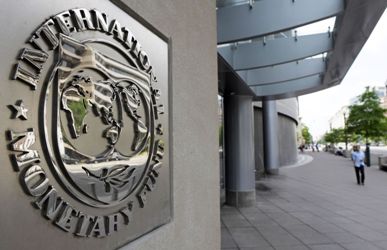IMF approves of Sudan economic reform policies
June 17, 2015 (KHARTOUM) – The International Monetary Fund (IMF) gave its blessings to the economic reforms carried out by the Sudanese government, an official here said today.

The Sudanese Finance Minister Badr al-Din Mahmoud urged the IMF to support Sudan in achieving further economic reforms, especially in the field of development and modernization of revenue collection tools and to back the zero option with the government of South Sudan for resolving the external debt issue.
The minister stressed during his meeting on Wednesday with the IMF mission headed by Eric Mutu his government’s commitment to respecting the agreements it signed with Juba and affirmed the success of the reform policies pursued by the ministry in 2014 and the first year of 2015.
He explained that performance indicators confirm this success where inflation has been reduced from 39% to less than 25% and the enforcement of tax reform through computerization of tax processes and the implementation of a single treasury system.
For his part, the IMF official confirmed their interest in promoting economic stability in Sudan and acknowledged the economic reforms that have been implemented, and attention given to development and economic stability and support of vulnerable segments of society.
Mutu said that the mission’s visit to Sudan is aimed at reviewing economic performance in the previous period and agreeing with the government on a new program for the coming period aimed at achieving stability in line with the government’s priorities.
The IMF Staff-Monitored Program (SMP) for Sudan has expired in December and has yet to be renewed and it appears that Sudan is looking to renew it.
The SMP is an informal agreement between country authorities and IMF to monitor the implementation of the authorities’ economic program. SMPs do not entail financial assistance or endorsement by the IMF executive board.
In 2009, Sudan agreed to SMP to help it achieve a set of economic and financial policies and objectives which include sustaining economic growth, controlling inflation, reforming the banking sector and reducing budget deficit among others.
(ST)
